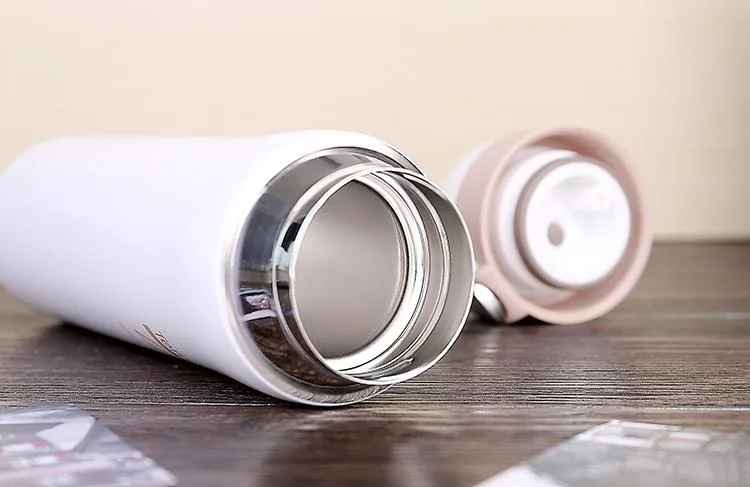1.First look at the label or instruction of vacuum insulated water bottle: the normal manufacturers will have the model, name, capacity, material, production address, manufacturer, standard number, after-sale, use method and so on.
2.Identification of plastic parts: Food grade plastics have small odor, bright surface, no burr, long service life and not easy to aging. Ordinary plastics or recycled plastics have large odor, dark color, many burrs, and are prone to aging and fracture. This will not only affect the service life, but also affect the health of drinking water.
3.Testing method for insulation performance of insulated water bottle: Because vacuum insulated water bottle adopts vacuum insulating technology, it can prevent heat from transferring to the outside world in vacuum, so as to achieve the effect of insulation. To test the insulation effect of vacuum insulated water bottle, just pour boiling water into the cup. After two or three minutes, touch each part of the vacuum insulated water bottle (especially the bottom) to see if it is hot. If there is a phenomenon of heating, the temperature will be lost from the heating part.
4. Sealing performance testing method: fill the water, tighten the lid and invert it for a few minutes (or shake it forcefully) to see if there is any water exposed.
5. Stainless steel material identification method: stainless steel material specifications are many, of which 18/8 indicates that this stainless steel material contains 18% chromium and 8% nickel. Material that meets this standard meets the national food-grade standards, is a green environmental protection product, rust-proof and corrosion-resistant. The color of ordinary stainless steel insulated water bottle is white or dark. If 1% salt water is put into the insulated water bottle, rust spots will appear 24 hours later. Some elements in the insulated water bottle exceed the standard, which directly endangers human health.


